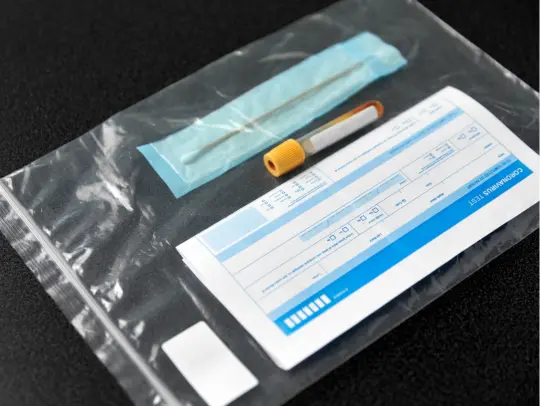
How Masturbation Affects Your Brain
How Masturbation Affects Your Brain
The Science Behind Neurochemical Benefits and Cognitive Impact
Have you ever wondered why you feel remarkably relaxed and clear-headed after masturbating? This natural and universal human activity triggers a fascinating cascade of neurochemical reactions that can significantly impact mood, stress levels, sleep quality, and even cognitive function. While often surrounded by myths, misconceptions, and cultural taboos, the scientific reality of masturbation reveals a complex interplay of brain chemistry that offers genuine health benefits when approached with balance and understanding.
The human brain's response to sexual activity, including masturbation, involves sophisticated neurochemical processes that have evolved over millions of years. These biological mechanisms serve important functions beyond mere pleasure, contributing to stress management, emotional regulation, and overall mental well-being. Understanding these processes can help dispel myths and provide a scientific foundation for making informed decisions about sexual health.
The Neurochemical Symphony: What Happens in Your Brain
During masturbation, the brain orchestrates a complex symphony of neurochemical activity. This intricate dance of neurotransmitters and hormones creates the pleasurable sensations and emotional responses associated with sexual arousal and orgasm. Understanding these individual components helps explain why masturbation can have such profound effects on mental state and overall well-being.
Dopamine: The Reward Chemical
Dopamine floods the brain during masturbation, creating intense feelings of pleasure and satisfaction. This neurotransmitter is responsible for the brain's reward system, reinforcing behaviors that promote survival and well-being. The dopamine release during masturbation can elevate mood, provide temporary escape from stress, and create a natural sense of accomplishment and contentment.
Oxytocin: The Bonding Hormone
Often called the "love hormone," oxytocin promotes feelings of emotional connection and deep relaxation. During masturbation, oxytocin release helps reduce anxiety and stress while fostering a sense of calm and well-being. This hormone also plays a crucial role in lowering cortisol levels, the body's primary stress hormone, creating a powerful anti-stress effect.
Endorphins: Natural Painkillers
The brain's natural opiates, endorphins are released during masturbation, contributing to euphoria and well-being. These powerful neurotransmitters interact with the brain's opiate receptors, reducing pain perception and inducing feelings of pleasure. The endorphin release creates a natural high similar to that experienced during intense physical exercise or other pleasurable activities.
Serotonin: The Mood Stabilizer
Serotonin plays a vital role in mood regulation, and increased levels during masturbation enhance overall emotional stability. This neurotransmitter is closely linked to feelings of happiness and well-being, helping to alleviate symptoms of depression and anxiety. Serotonin also influences sleep patterns, appetite, and emotional balance, making it crucial for overall mental health.
Post-Orgasm Brain Changes: The Recovery Phase
The neurochemical activity doesn't stop at orgasm. In fact, some of the most significant brain changes occur in the minutes and hours following climax. This post-orgasm phase involves unique hormonal releases and neurological adaptations that contribute to the lasting benefits of masturbation.
Prolactin and the Refractory Period
After orgasm, the brain releases prolactin, a hormone associated with the refractory period—the time during which further arousal becomes difficult. Prolactin promotes deep relaxation and a profound sense of satisfaction. This hormone is also associated with feelings of sexual fulfillment and contributes to the natural tendency to rest or sleep after sexual activity.
Sustained Stress Reduction
The combination of oxytocin, endorphins, and other neurochemicals continues to provide stress-relieving effects long after the sexual activity ends. This sustained reduction in stress hormones can last for hours, creating an extended period of calm and mental clarity. The stress reduction is so significant that it can be measured through decreased cortisol levels in saliva and blood tests.
Enhanced Sleep Quality
The neurochemical changes following masturbation create ideal conditions for high-quality sleep. The combination of relaxation, stress reduction, and the natural fatigue that follows sexual release makes it easier to fall asleep and achieve deeper, more restorative sleep cycles. This improved sleep quality has cascading benefits for cognitive function, emotional regulation, and overall health.
Does Masturbation Make You Smarter? The Cognitive Connection
While masturbation doesn't directly increase intelligence or IQ, its effects on brain chemistry create conditions that can significantly enhance cognitive performance. The relationship between masturbation and cognitive function is indirect but scientifically measurable, involving improvements in several key areas that support mental acuity and brain health.
?? Enhanced Focus
Reduced stress and improved mood create ideal conditions for sustained attention and concentration. When the brain isn't preoccupied with managing stress hormones, more mental resources become available for cognitive tasks.
?? Better Memory
Quality sleep following masturbation supports memory consolidation processes. During deep sleep, the brain transfers information from short-term to long-term memory and clears metabolic waste products.
?? Increased Creativity
A relaxed, positive mental state fosters creative thinking. When freed from stress and negative emotions, the brain can make novel connections and explore innovative solutions.
? Improved Productivity
A well-rested, stress-free brain operates more efficiently. The combination of better sleep and reduced anxiety leads to improved task completion and decision-making abilities.
The Stress-Cognition Connection
Chronic stress is one of the most significant threats to cognitive function. Elevated cortisol levels can impair memory formation, reduce attention span, and interfere with executive function. By effectively reducing stress hormones, masturbation creates a more favorable neurochemical environment for optimal brain performance.
Research shows that individuals with lower chronic stress levels consistently perform better on cognitive assessments, demonstrate superior problem-solving abilities, and maintain better focus during challenging tasks. The stress-reducing effects of masturbation can contribute to this improved cognitive state.
The Importance of Balance: When Healthy Becomes Problematic
While masturbation offers numerous neurochemical benefits, like any behavior, it can become problematic when taken to extremes. Understanding the difference between healthy sexual expression and compulsive behavior is crucial for maintaining the positive effects while avoiding potential negative consequences.
Potential Negative Effects of Excessive Masturbation
When masturbation becomes compulsive or interferes with daily functioning, it can lead to several concerning outcomes that counteract its natural benefits.
Physical Discomfort and Injury
Excessive masturbation can result in physical discomfort including soreness, chafing, and in severe cases, more serious injuries to sensitive tissues. The repetitive nature of the activity, when overdone, can cause inflammation and temporary loss of sensitivity. These physical issues can interfere with normal sexual function and cause unnecessary pain.
Mental Health Implications
Compulsive masturbation often becomes associated with feelings of guilt, shame, and anxiety, particularly when it's used as a primary coping mechanism for underlying psychological issues. This can create a cycle where the behavior that initially provided stress relief becomes a source of additional stress and emotional distress.
Interference with Daily Life
When masturbation becomes a compulsion, it can interfere with work productivity, social interactions, and personal relationships. This interference can lead to a significant decrease in overall quality of life and may indicate the need for professional intervention or support.
Impact on Sexual Relationships
Excessive masturbation can potentially reduce sensitivity and sexual satisfaction during partnered activities. It may create unrealistic expectations or lead to physical desensitization that affects intimate relationships. Additionally, compulsive behavior can become a substitute for healthy interpersonal sexual connection.
?? Finding the Right Balance
The key to maximizing the neurochemical benefits of masturbation while avoiding negative consequences lies in moderation and mindful awareness. Healthy masturbation should enhance rather than replace other aspects of life and well-being.
A Holistic Approach to Brain Health and Sexual Wellness
While masturbation can provide significant neurochemical benefits that support cognitive function and mental health, it's important to view it as one component of a comprehensive approach to brain health. The most significant cognitive benefits come from integrating sexual wellness with other healthy lifestyle practices.
Complementary Brain Health Strategies
A truly effective approach to cognitive enhancement and mental well-being includes regular physical exercise, which provides its own neurochemical benefits including endorphin release and improved brain blood flow. Proper nutrition supports neurotransmitter production and brain function, while social connections and meaningful relationships provide emotional support and cognitive stimulation.
Mental challenges through learning, reading, and problem-solving activities help maintain cognitive sharpness and neural plasticity. Mindfulness practices and stress management techniques complement the stress-reducing effects of masturbation, creating a more comprehensive approach to mental wellness.
The Role of Sleep in Cognitive Function
The sleep-enhancing effects of masturbation represent one of its most significant contributions to cognitive health. During sleep, the brain performs crucial maintenance functions including memory consolidation, toxin clearance, and neural pathway strengthening. Quality sleep is so fundamental to cognitive function that improving sleep quality through any means, including the relaxation effects of masturbation, can have profound impacts on mental performance.
Understanding Individual Differences and Personal Needs
The neurochemical effects of masturbation can vary significantly between individuals based on factors including age, overall health status, psychological state, and personal history. Understanding these individual differences is important for setting realistic expectations and developing healthy approaches to sexual wellness.
Some individuals may experience more pronounced stress-reduction benefits, while others might notice greater impacts on sleep quality or mood regulation. These variations are normal and reflect the complex interplay between genetics, environment, and personal circumstances that influence brain chemistry.
When to Seek Professional Guidance
If masturbation becomes compulsive, interferes with daily functioning, or causes distress, it may be beneficial to seek guidance from healthcare professionals or therapists who specialize in sexual health. Similarly, if someone experiences guilt, shame, or anxiety related to masturbation due to cultural or religious factors, counseling can help address these concerns in a healthy way.
Mental health professionals can also help individuals who are using masturbation as a primary coping mechanism for depression, anxiety, or other psychological issues develop more comprehensive and effective strategies for managing their mental health.
WankO Pleasure Sleeve 3 Pack
Unisex Silicone Masturbation Toy
The WankO disposable masturbation sleeve delivers real-feel pleasure for both men and women, featuring three sensual textures Wavy, Boxy, and Bumpy for a variety of sensations.Regular Price $15.00
Your Price BUY NOW!
Coupon automatically added to your cart
Three varieties, including Wavy, Boxy and Bumpy, give you a different sensation every time.
Realistic intercourse feel silicone textures.
Simple to use and easier to discard.
One-time personal use in a single pack.
Get all 3 WankOs included in the one package.
Key Takeaways: Masturbation and Brain Health
Masturbation triggers a powerful neurochemical response that can enhance mood, reduce stress, improve sleep quality, and indirectly support cognitive function. The release of dopamine, oxytocin, endorphins, and serotonin creates natural benefits for mental health and well-being.
While these effects don't directly increase intelligence, they create optimal conditions for cognitive performance by reducing stress, improving sleep, and enhancing mood. The key to maximizing benefits lies in maintaining balance and integrating sexual wellness with other healthy lifestyle practices.
Remember: Masturbation is a natural, healthy activity when approached with moderation and awareness. Understanding its neurochemical effects can help individuals make informed decisions about their sexual health and overall well-being.




































































































































